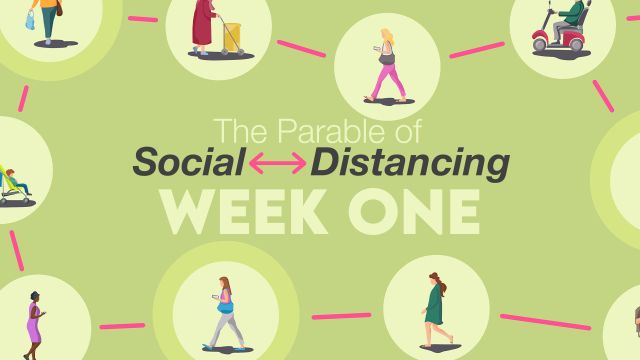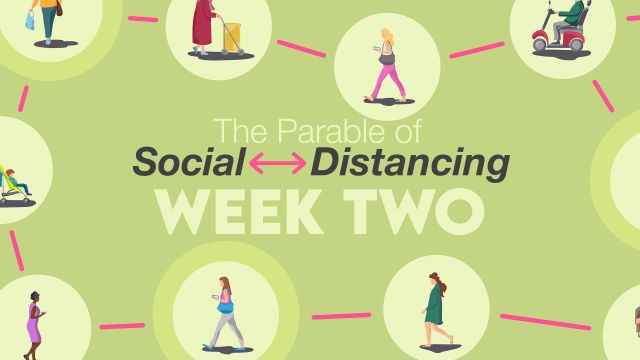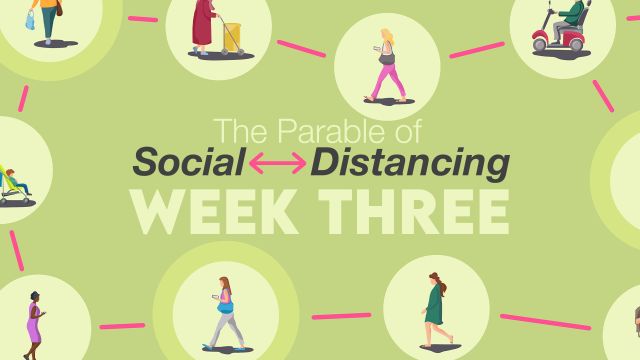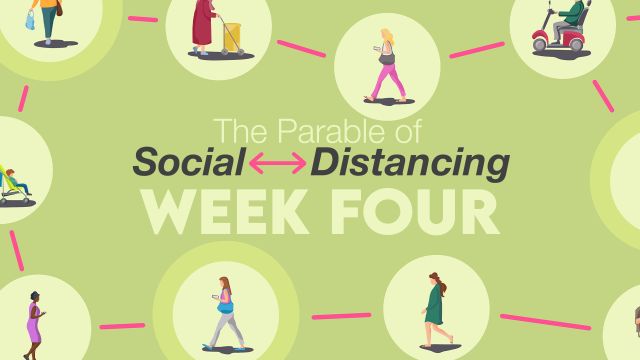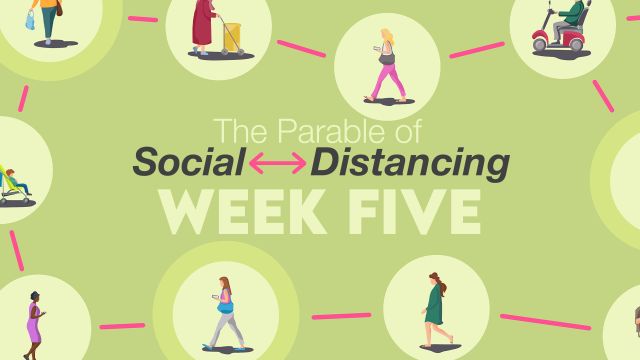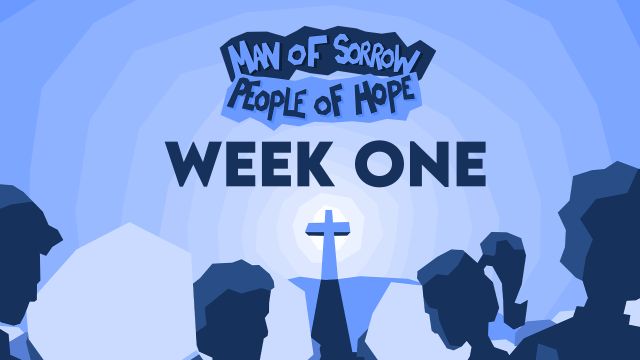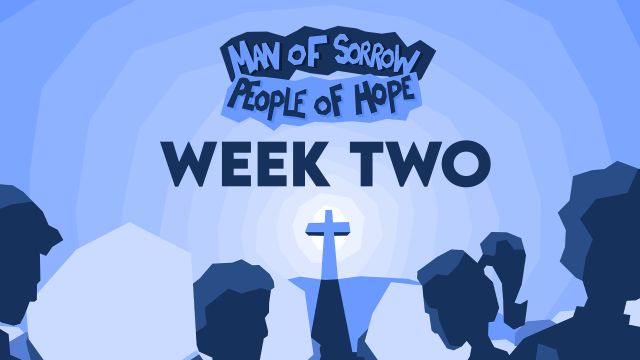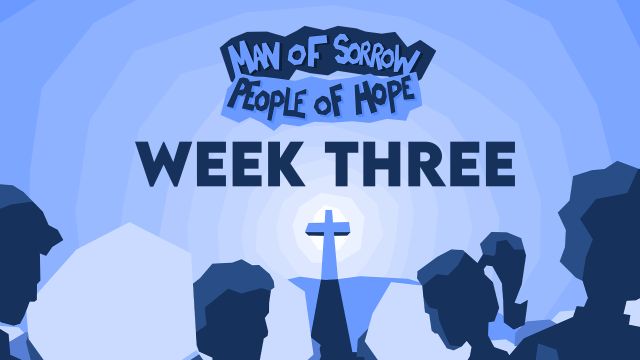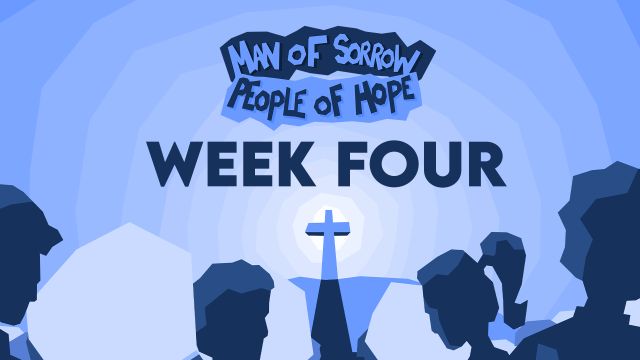Lent 2021 - Connect Groups
Week One
Part 1: You can't escape Holiness
All of our questions are intended as a starting point, feel free to adapt to your context and circumstances.
Read Psalm 111: 1-10
What does this passage mean — surely we are not to be afraid of God?
What does it mean to fear God and how can that be the beginning of wisdom?
Read Mark 1: 21-28
The premise of this theme is that the current safety measures of ‘social distancing’ can be read as a parable of how we have already been increasingly ‘socially distant’ from one another for years — becoming in many ways disconnected from one another. As we see from this encounter in the synagogue Jesus is fully physically, intellectually and spiritually present.
In our day to day lives have we socially distanced ourselves from healing, teaching and spiritually?
 Have we compartmentalised these things into a box that we only open once a week or even less?
Have we compartmentalised these things into a box that we only open once a week or even less?
How can we be like Jesus and be more present in body, mind and spirit?
Read Malachi 3: 1-4
Sometimes it is hard not to feel socially distant from God. But there is always a way back.
What has to be refined in our lives to bring us close to God again?
What parts of our body need to become alive again to Jesus to create community, to experience freedom, to live out love?
Week Two
Part 2: Your freedom is my freedom?
As we prepare for Lent 2021 what are you hoping to discover about God? Consider maintaining a journal over the weeks ahead.
Read Luke 2: 22-40
How good are we at honouring and listening to the voices of older Christians?
 Have we become distanced from older voices like that of Anna and Simeon?
Have we become distanced from older voices like that of Anna and Simeon?
How can we ensure all generations are heard?
Read 1 Corinthians 9: 16-23
Humility, servanthood and love are the marks of those who risk all for the sake of the Gospel. How far will we travel down such a road in order to bring others to Jesus?
Read 2 Kings 2: 1-12
It’s never easy to pass the mantle to another. What are the reasons for this?
Week Three
Part 3: Seeing with new eyes
Read Mark 9: 2-9
 What do you think is the difference between a ‘realisation’ and a ‘revelation’?
What do you think is the difference between a ‘realisation’ and a ‘revelation’?
How do reasoning and faith interact in our walk with God?
Read Isaiah 58: 1-12
The true meaning of Lent (which begins on Ash Wednesday 17th February) is not about an outward show of discipline and abstinence. It is not a season of rule keeping. It is about an inward transformation that changes our will and our behaviours so that we become servants of the poor and and afflicted rather than performers of services to the rich and powerful. True fasting is to choose “to loose the bonds of injustice”.
What is one injustice that it is in your power and will to do something about?
Read Matthew 6: 1-6, 16-21
Most of us (we assume) don’t carry a trumpet around so that we can blast it every time we do something virtuous, but we often find subtle and not so subtle ways to brag about our actions to others.
When giving to charity why is it wrong to boast about it?
Why is there an emphasis on secrecy in the reading?
Week Four
Part 4: Covenants, signs and promises
Read Genesis 9: 8-17
This reading is the dramatic ending of the flood narrative with God’s setting his bow across the clouds as a sign of his covenant with a restored humanity.
When should we humans take the blame for incidents that insurance companies call an 'Act of God’? Tragically many of the disasters we suffer are as a result of humans upsetting the balance of nature.
The covenant in the reading is made between God and “and all living creatures of every kind on the earth”. How can we take better responsibility for God’s earth on behalf of every living creature?
Read Mark 1: 9-13
 After his baptism Jesus socially distanced himself in the wilderness.
After his baptism Jesus socially distanced himself in the wilderness.
It is often in times of reflection and solitude that we see more vividly the signs and promises of God. But times of isolation can also bring strain and temptation as we are removed from those around us who support us.
What are the temptations we face when we ‘get away from it all’ and how can we make sure we stay tuned in to God?
Read Psalm 22: 23-31
In this time of pandemic and mask wearing verse 24 resonates especially: ‘he did not hide his face from me’. During a time of absence and distance it is comforting to know that God is not hidden.
What have been the signs and promises of presence that have sustained you through lockdowns? It could be letters or emails or video calls with friends and family. What about signs of God — have there been any moments in the quiet where you have felt a sense of God’s presence?
Week Five
Part 5: The parables of Jesus, lessons learned from social distancing
Read Luke 10:25-37
The priest and the Levite were practicing social distancing long before the rest of us…
 The forced separation we are going through at the moment throws into perspective what you might call the selfish social distancing many of us were engaging in before the pandemic — preferring to hold back, look away, and cross to the other side of the street to avoid facing one another.
The forced separation we are going through at the moment throws into perspective what you might call the selfish social distancing many of us were engaging in before the pandemic — preferring to hold back, look away, and cross to the other side of the street to avoid facing one another.
Who is your neighbour — the people who need you! In these restricted times and in the future when restrictions are lifted — what are things we can do for the people who need us?
Discuss as a group
Do you have a favourite parable?
What has social distancing taught us about the kingdom of God?
If you had to make up a parable about social distancing and the dilemmas it has brought about what would your story look like? What issues would you raise and resolve?
Read Matthew 9: 16-17
What has to change in the church to face the new reality that will meet congregations on their return to their buildings in the future?
Can you put the the new things we have discovered about God and our communities in this past year into the same old formats? How can we resh
Week One
Part 1: A man of sorrows…
Jesus’s sojourn among us embodied an ongoing divine message that while sorrow comes and night falls, so too will our hearts fill again and the sun rise.
Read Exodus 20: 1-17
 These ancient commandments offer divine way markers towards hope and away from sorrow. They say — remember who I am, remember who you are, remember to rest. Then they offer a roadmap through the heartbreak inevitable in discordant communities found when intimacy, family, rest, the divine, livelihoods and the value of life break down.
These ancient commandments offer divine way markers towards hope and away from sorrow. They say — remember who I am, remember who you are, remember to rest. Then they offer a roadmap through the heartbreak inevitable in discordant communities found when intimacy, family, rest, the divine, livelihoods and the value of life break down.
There is so much to unpack in this sequence but as a starter let’s consider verse 12 about honouring our mother and father. Who have been the ‘alloparents’ in your life? (The people who were not your parents but who helped raise you and shape who you have become like other family members, neighbours, teachers, Godparents and more). And in an even wider sense who have been your parents in faith? Perhaps people you have never met but who left a legacy which helped guide and inspire you. How can we give all these different kinds of parents honour?
Read Psalm 19
The vivid image of honey speaks of how in the midst of the hurt of life the sweet (and even antibacterial) rules of God bring balm and comfort.
As a group come up with a range of ‘sweet things’ you could do tomorrow to live out God’s love in your local communities.
Read John 14: 1-7
Jesus knew the role he had to take on, to become truly a man of sorrows and in that sorrow to give us the opportunity to blossom as a people of hope. He was mindful of the pain to come and yet he took heart in the expansive divine love he was fulfilling.
Jesus urges every generation to take heart. ‘Taking heart’ doesn’t mean ignoring, or suppressing or minimising the heartache. We can’t wish the pain away. But through taking heart we make a gesture of hope, we stake a claim of ownership on a future promised us where the story of who we are will make sense of where we have come. As Julian of Norwich famously said: “All shall be well, and all shall be well, and all manner of thing shall be well.”
How can we gently and sensitively encourage one another in these difficult times to take heart?
Week Two
Part 2: Acquainted with grief…
Read John 2: 1-12
Jesus was acquainted with grief but he was on first name terms with feasting and friendship and festivity! His public ministry that we hear about in the gospels was only a few years and much of that largely consisted of hanging out with people informally — grabbing a bite, telling stories, travelling. He was not aloof or above the crowd. As we see in this reading he was happy to roll his sleeves up and take a role in the hospitality.
Why does Jesus’s mother make a point of telling him about the wine and why does he rebuff her and yet do something about it anyway? Was this totally ‘a thing’ that Jesus was known to do? Do you think he did similar things at other times in his life?
 For a man that knew the sorrow that lay ahead how did he manage to exude such liveliness, humour and enthusiasm?
For a man that knew the sorrow that lay ahead how did he manage to exude such liveliness, humour and enthusiasm?
Read Psalm 126
Sometimes our bittersweet tears can lead to something new. Like unassuming seeds that grow into something wonderful and beautiful to reap.
What are the tears of 2020 that can be planted in 2021 and harvested in the decade ahead? Through all the upheaval and turmoil what can we learn from the heartache of last year and use to work towards a better future?
Read John 16: 16-22
In the first three verses the phrase ‘little while’ (in NRSVA translation) is used six times!
Our lives are lived in little whiles. Little whiles of coming and going; this thing and then the next. Our days and years have rise and fall, presence and absence, distance and reunion. Jesus reassures us that through pain and difficulty that new life can and will be found. There will be weeping. And then, then there will be rejoicing.
Why do we go through sorrow to get to the joy? Why is life difficult? Why isn’t there just a shortcut to joy? — As a group you don’t have to come up with definitive answers. These are big questions and you may, like the disciples, just want to repeat and puzzle for a little while…
Week Three
Part 3: The travail…
Read Isaiah 53: 3-12
Isaiah 53: 11 in the King James version of the Bible reads: ”He shall see of the travail of his soul, and shall be satisfied: by his knowledge shall my righteous servant justify many; for he shall bear their iniquities.” That word ‘travail’, meaning laborious effort, comes from a latin origin referring to a torture implement (three + stakes). ‘Travail’ isn’t commonly used in contemporary English but the word ‘travel’ which we use frequently was originally a Middle English variant of travail and had the same meaning. Imagine if our Sunday newspapers had pull out ‘Travail’ supplements and you could go to a ‘Travail Agents’ to book some painful effort… It’s useful to ponder on the links between travails and travels — in either case we find ourselves ending up somewhere new.
 This reading foreshadows the mystery of the incarnation — that Jesus’s soul travelled, it went through the darkness and into the light on our behalf. It wasn’t instantaneous or automatic, it took effort and love and sacrifice. Why did Jesus walk our road and not just ‘helicopter’ over it? Why go to such extraordinary lengths to experience life on a human scale?
This reading foreshadows the mystery of the incarnation — that Jesus’s soul travelled, it went through the darkness and into the light on our behalf. It wasn’t instantaneous or automatic, it took effort and love and sacrifice. Why did Jesus walk our road and not just ‘helicopter’ over it? Why go to such extraordinary lengths to experience life on a human scale?
Read 2 Corinthians 8: 1-9
As we have learned again during the pandemic: generosity and wealth aren’t linked. Some of the most generous people have been those with the most to lose who have gone over and above to help others. How have you experienced generosity over the past year?
How can we excel in generosity ourselves in the week ahead?
Read Hebrews 9: 11-15
The mind-blowing truth about Jesus is that he travelled our road, he felt our pain, and in so doing brought about our redemption, our joy and our restoration. Jesus cares deeply about us and wants to have a relationship with us.
Imagine going on a walk with Jesus. As a group discuss the different places you would take him. What would you show him along the way?
Then — here’s the twist — you can actually go on this walk with Jesus! He lives! Next time you visit that place go alongside Jesus (if it isn’t practical to get to that place yourself then take Jesus somewhere else and chat about it anyway, he won’t mind) pointing things out as you go.
Week Four
Part 4: Poured out his soul… (Holy Week)
Each year Holy Week before Easter Sunday depicts the drama of reality, history, blood and bone all coming together in a cosmic culmination: one soul poured out for all — freely.
Read Psalm 71
As our own lives unfold sometimes all we can do is, as we say in Scotland, ‘haud on’ (hold on).
 Are there any Bible verses or songs or poems (or something else) that help bring you to a place of hope and praise? That help you haud on when you’re feeling overwhelmed?
Are there any Bible verses or songs or poems (or something else) that help bring you to a place of hope and praise? That help you haud on when you’re feeling overwhelmed?
Read 1 Corinthians 11: 23-26
What has been your experience of Communion over your life?
Read Hebrews 4: 14-16
We can approach Jesus with boldness. He has identified deeply with our sorrow and our hope and through his travail has given us our tomorrow.
How has your journey been through Lent 2021? Have you learnt, or rediscovered, or grown to appreciate anything new about yourself or about God?
What are your sincere hopes that you want to bring boldly to Jesus this Easter?




